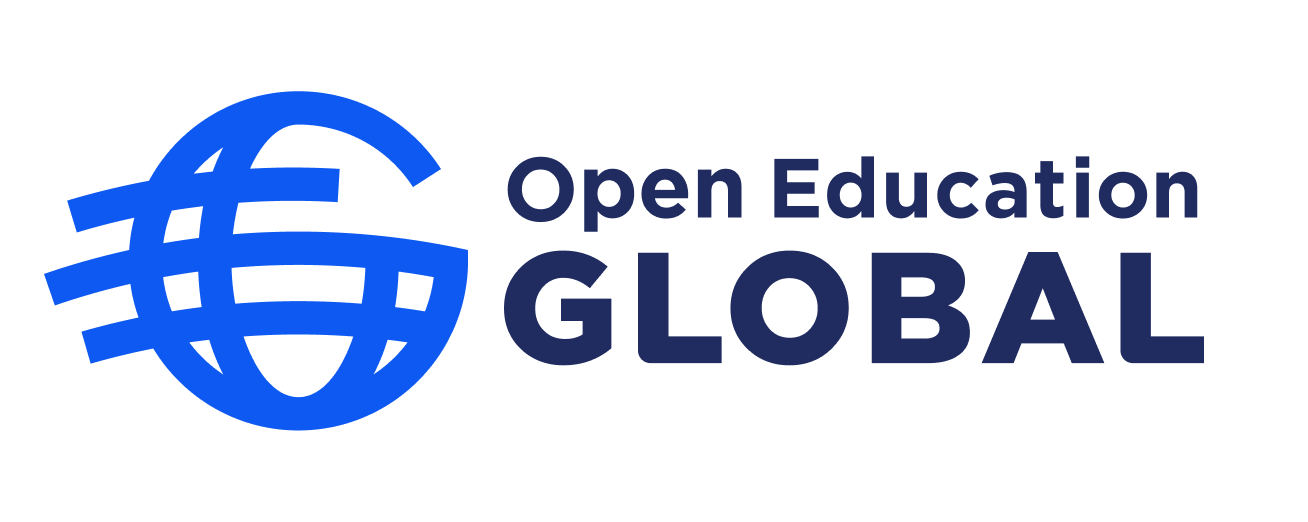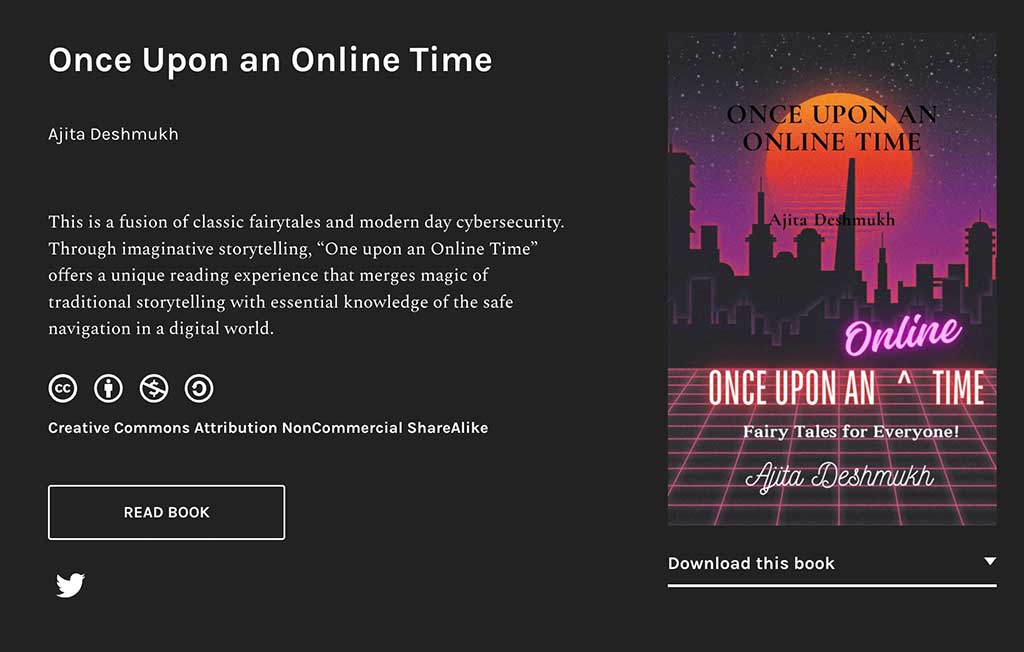Combining a concern for making cybersecurity understandable to children and a decline in their reading habits, Ajita Deshmukh (Individual OEGlobal Member) has published in Once Upon an Online Time an open resource of classic fairy tales re-told with characters and plots related to cybersecurity.
Ajita described her project in one of the OEG Live webcasts held during the 2024 Open Education Week and last month she was kind enough to share the link with us. This seemed like an ideal story to revive our series of OEG World stories, where we share an example of an OE Global member’s efforts in action.
As described in her introduction, the idea was born through her education efforts of teaching cybersafety, and witnessing the challenge as more children were venturing online during the global pandemic.
There definitely is a dark web out there and the travelers in this cyberspace are, though unbelievable it may sound, kids as young as two years old(!), making cybersafety awareness crucial. Already engaged in educating children about cybersafety, I found the traditional methods somewhat lacking. The posters and lectures often felt preachy, leaving me with a nagging feeling that something more was needed. However, pinpointing what that something was, remained elusive.
Simultaneously, an avid reader myself, I couldn’t help but be troubled by the reports lamenting the decline of childrens’ reading habits. It seemed inconceivable to me and I used to make concerted efforts for the same through my storytelling sessions.
https://pressbooks.justwrite.in/ouaot/front-matter/from-the-authors-desk/
It was the description of the fox in Little Red Riding Hood as an imposter that generated the idea of Pixels and Perils: Cyber Red’s Online Odyssey where Cyber Red dons her VR headset to take a trip through the Virtual Forest to visit her grandmother. She has learned well as she averted the temptation to click a link offered by CraftyFox.
You will find in the collection a modern version of Goldilocks and the Three Bears that involves intrusion detection, Jack and The Beanstalk retold as a story of firewalls, and in a new version of the Pied Paper, a secure cipher is the means to avoid the calls of ransomware notes. The idea is for these to be stories children might read and then discuss with parents or teachers.
As we discussed in our Open Education Week conversation, I note that it’s interesting that European fairytales have a well known presence in India, where I would think many of the symbols and settings are not familiar. This says a lot about the potential of stories to work in different cultural settings.
Ajita has experimented as well with Generative AI for the book’s illustrations. This is an exemplary example of an open educator being driven to create a new resource, and as well collaboration, since her book is made available from the Justwrite Pressbooks, the project of another active Individual OEGlobal member, Sushumna Rao.
I invite you to explore this wonderfully creative and well-crafted education resource developed and shared openly by Ajita, and please send some comments or feedback via OEG Connect.
Note: This OEG World series was started in 2022 as the idea of sending me as an armchair traveler of the web, to spend 30 minutes to visit, humanly summarize, and share a project or resource created by an OEGlobal member. Ajita’s storytelling OER inspired me to dust off the idea and start anew. All I need is a link to send me on my way. Where should I go next? If you are an OEGlobal member, you can start my next trip my sending an email to world@oeglobal.org.


I hope visitors here take time to explore Once Upon and Online Time created and shared by @AjitaD
I’ve been able to map the newly told stories to their original, but leave it to our audience here to do their own matching. It’s interesting that in Cyber Red’s Online Odyssey the dangerous character is a fox where I remember it as a wolf- is that how the story of Red Riding Hood is known where you are, or is that part of the new story?
Also, I am curious to know if you are considering adding to this collection? Oh and what kind of reactions have you hear from readers and parents?
Thanks again for sharing your marvelous creation.
Thankyou for this post and sharing some intriguing thoughts. Yes, these are the stories that many of us grew with. It opened to us a world of unknown symbols and settings especially which soon became part of our daily conversations. We often use them in our conversations and (nowadays) memes. So, the idea was to create ‘something old, something new’
 – familiar but new.
– familiar but new.
And indeed @sushumna played a key role in making this book see the light of the day.
I really hope that these stories are retold, adapted and reach maximum people and used for benefit.